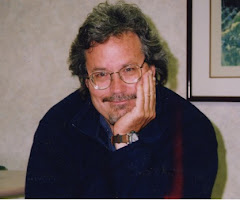EVALUATING SONG TEXTS
What is the predominant image of God?
- high, exalted, majestic 35
- lowly, humble, suffering 04
- both equal 05
- not applicable 06
Which of these is most important in the text?On which person of the Trinity is the focus?
- God's nature 16
- God's actions 14
- our actions 21
- not sure 2
How does the text present God speakingto us? (check all that apply)
- the Father 11
- the Son 17
- the Holy Spirit 0
- all three 2
- not clear 21
How closely is the text tied to a specific Scripture passage?
- through the external world 15
- through his saving acts 10
- through his Word 02
- through the sacraments 0
- not applicable 26
How is sin presented?
- based on a psalm or OT passage 11
- based on a NT passage 04
- not based on a specific passage 20
- not sure 13
How is God's saving work presented?
- sin and its consequences (e.g. death, hell) are presented 03
- sin is presented, but not its consequences 03
- sin is not presented 44
How is growth in the Christian life presented?
- Christ's sacrifice saves us from sin and death 04
- Christ's sacrifice is mentioned, but its benefits are not clearly presented 06
- God's power and/or love saves us 11
- God's saving work is not presented 28
- as a result of or response to Christ's saving work 03
- as something to be desired 13
- growth in the Christian life is not presented 32.
Ok, a couple of caveats:
This shouldn't be seen as a scientific evaluation of Christian praise music in America. For one thing, we didn't spend a lot of time on it. For another, we were all reasonably well catechized Lutherans looking at these through a specifically Lutheran lens. Another group might come up with very different numbers.
Nevertheless, I think professor Herl's evaluation is a great one for Lutherans to consider using in evaluating music coming into the Divine Service off the street, as it were. Forget backbeat: what is the THEOLOGY of the song?
A few things zing out at me:
- the prevalance of songs extolling the "high, exalted nature" of God as opposed to the "lowly,humble, suffering" image.
- Where's the Holy Spirit? Herl pointed out that in the early days of praise music, the "glory seventies", the HS was THE focus. See my post here on Jesus hippies. Note also: in an email to me, Professor Herl mentions this as clarification: "The Holy Spirit was mentioned more often in praise songs from the seventies, but wasn't really the focus. Many of the songs were trinitarian." I stand corrected (This is what happens when I don't take notes!).
- While it is common to criticize modern-day praise music for being focused on "me", I thought the songs scored pretty well in the second section, where God's nature and God's actions stack up pretty well compared to "our actions".
- Sin. There is no "Woe is me" in much of this material. In a whopping 44 of the 50 songs, sin has no reference.
- As you would guess, the sacraments are missing. And that is because....well, they are also missing as foci in the theology of the groups using these songs. Lex orandi, lex credendi. And vice versa.
- I would have thought that "growth in the Christian life" would be a prime topic in praise music, but according to these stats, not so.
- This was REALLY FUN to do, and I think I'd recommend it, after some thought and introduction, as a Higher Things-type activity or for an adult Bible study.


3 comments:
Do you know if special permission is needed to use the text of these songs, for example, in a Bible class setting? And either way, where can the text be obtained?
I wish I was living close to where these classes are being offered, it sounds like a great, educational weekend!
Jesse:
I have the CCLI website linked in the article. The handout we got from Herl had this printed at the top:
"All texts reprinted under the fair use provisions of USC Title 17, Section 107".
That appears to be the legal disclaimer for the particular use his handout had, which is the same one you would have.
LL: Yeah, the midwest and Lutheran theology. You can get a little in Colorado; a bit in Texas. But there's nothing like the Midwest for good confessional Lutheran conferences. So many Lutherans, so little time.
I'll have more tomorrow, when I post about the actual topic of the conference, Paul Gerhardt. Stay tuned.
Post a Comment